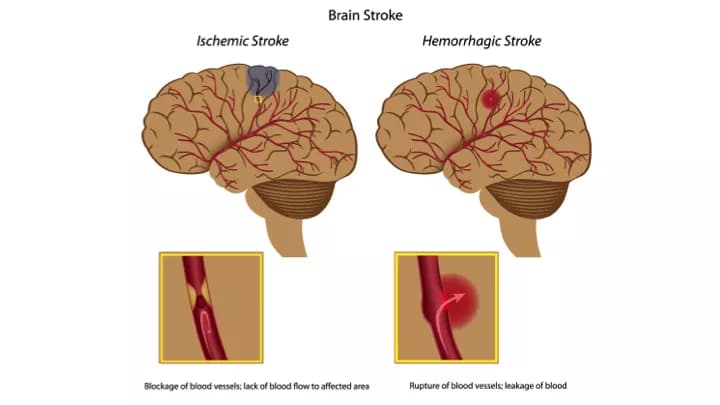
Hormone Therapy In The Menopause Transition Does Not Increase Risk Of Stroke
Postmenopausal hormone therapy is not associated with increased risk of stroke, provided that it is started early, according to a report from Karolinska Institutet in Sweden published in the journal PLOS Medicine.
Roughly three in ten women in the menopause transition are afflicted by symptoms that seriously affect their wellbeing, such as hot flushes, dry mucosa and insomnia. However, although the symptoms can be treated effectively with female sex hormones, prescriptions have been low over the past 15 years as researchers have demonstrated a link between such therapy and an increased risk of certain diseases, including stroke.
There is still, however, a need for more research on the issue, as the risk can be influenced by the time of the treatment and other factors, reasons Karin Leander, researcher at Karolinska Institutet's Institute of Environmental Medicine.
"New research shows us that hormone therapy actually has a positive effect on blood vessels if initiated early on in the menopause, but not if initiated late," says Dr Leander. "So there was reason to re-examine whether hormone therapy is linked to the risk of stroke, taking, of course, the time of administering into consideration."
Dr Leander and her colleagues have now analysed data on postmenopausal hormone therapy from five Swedish cohort studies covering a total of 88,914 women, combined with data from national registries on diagnoses and causes of death during a follow-up period.
Hormone therapy was not linked to increased risk of stroke (ischemic and haemorrhagic stroke combined) if the therapy was initiated within five years of menopausal onset, regardless of means of administration (oral, via the skin or vaginal), type of therapy (combination or oestrogen only), active substance and treatment duration.
In sub-analyses, however, there was an observable increase in risk for haemorrhagic stroke (the less common form) if the therapy contained the active substance conjugated equine oestrogens. Drugs containing oestradiol, on the other hand, were not associated with a higher risk. A higher risk was also seen for both ischemic and haemorrhagic stroke if the treatment was initiated later than five years after the onset of menopause and contained conjugated equine oestrogens.
"The risk of stroke seems virtually eradicable if treatment commences early, but it's naturally important to take account of the increase in risk that exists under certain circumstances," says Dr Leander. "These results provide doctors with a better scientific base on which to take decisions on treatment for menopausal symptoms."
Materials provided by Karolinska Institutet. Note: Content may be edited for style and length.
Disclaimer: DoveMed is not responsible for the accuracy of the adapted version of news releases posted to DoveMed by contributing universities and institutions.
References:
Germán D. Carrasquilla, Paolo Frumento, Anita Berglund, Christer Borgfeldt, Matteo Bottai, Chiara Chiavenna, Mats Eliasson, Gunnar Engström, Göran Hallmans, Jan-Håkan Jansson, Patrik K. Magnusson, Peter M. Nilsson, Nancy L. Pedersen, Alicja Wolk, Karin Leander. (2017). Postmenopausal hormone therapy and risk of stroke: A pooled analysis of data from population-based cohort studies. PLOS Medicine. DOI: 10.1371/journal.pmed.1002445
Related Articles
Test Your Knowledge
Asked by users
Related Centers
Related Specialties
Related Physicians
Related Procedures
Related Resources
Join DoveHubs
and connect with fellow professionals

0 Comments
Please log in to post a comment.